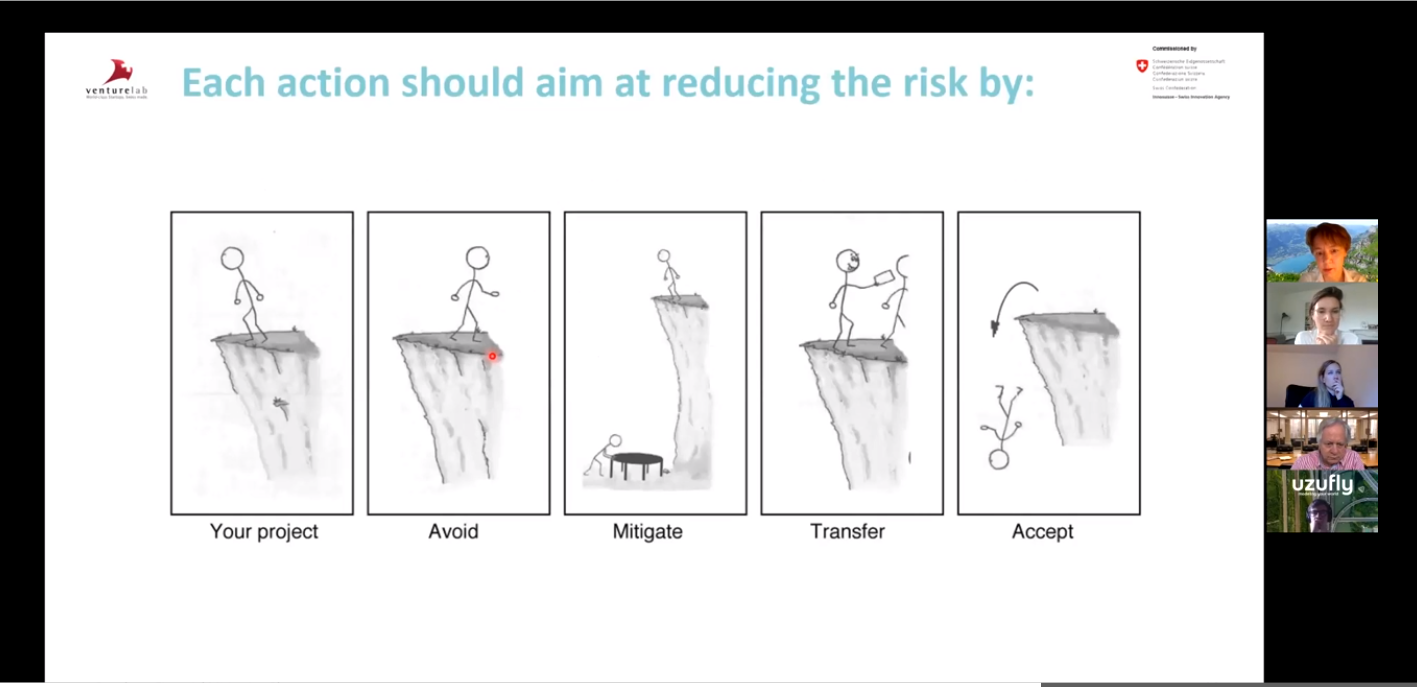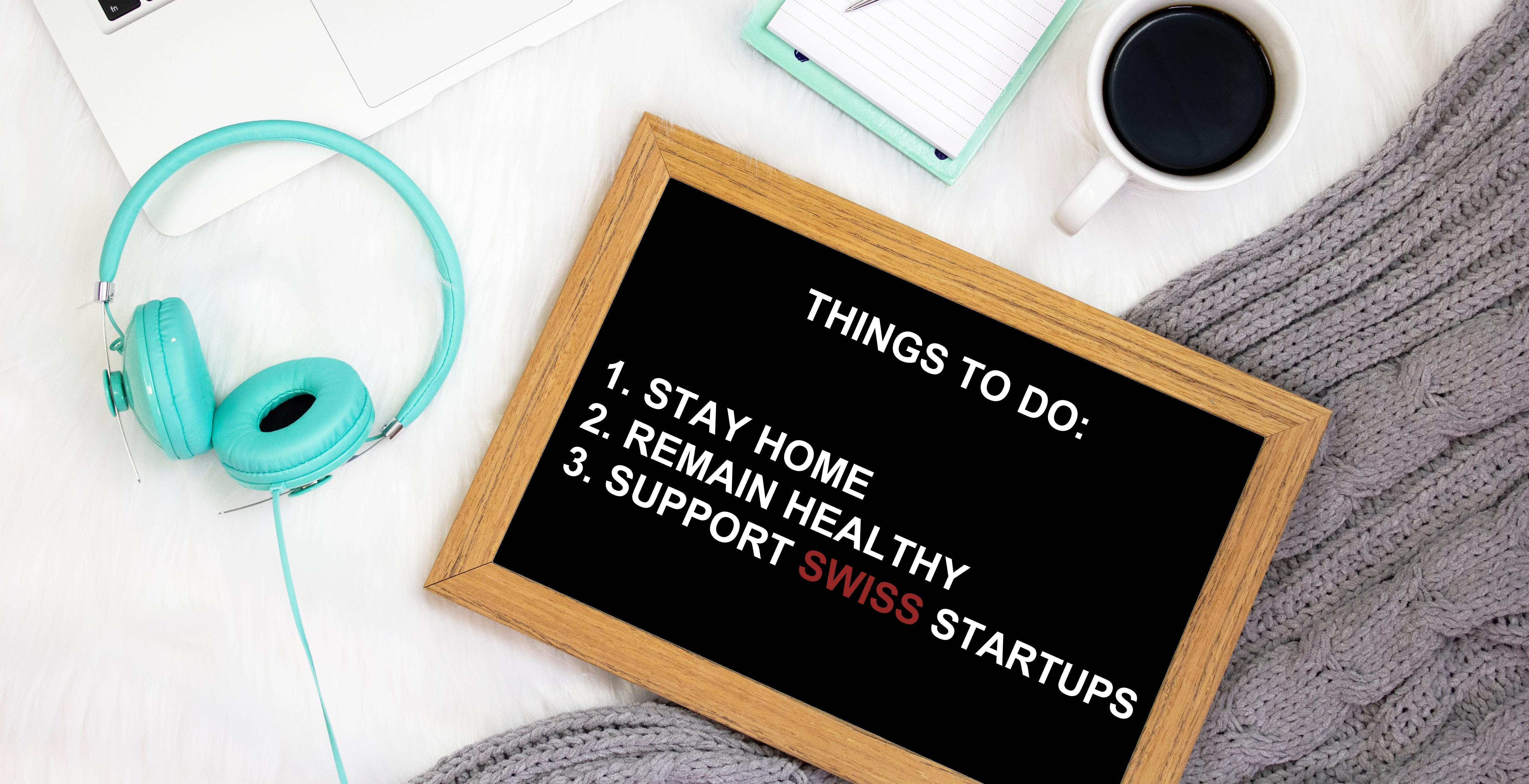Winston Churchill probably did not anticipate the impact of COVID-19 on the world when he said, “Never let a good crisis go to waste.” But his words still ring true in 2020—at least according to the cautiously optimistic investors and experts who discussed the state of fundraising in Switzerland. With more than 230 participants, Venturelab’s biggest webinar to date, which was organized in cooperation with Kellerhals Carrard, gave insights into current investment strategies and best practices for fundraising during COVID-19.

Seven assumptions for 2020
One thing is certain in these unpredictable times: The coronavirus pandemic is hitting startups especially hard. Even though it will be challenging to make exact predictions, Karim Maizar from Kellerhals Carrard analyzed surveys and predictions to come up with seven assumptions for 2020 and lay the foundation for the discussion with the six experts:
- Investors’ market: We are shifting from a founders’ market to an investors’ market with respect to VC deal terms.
- Lower valuations: Valuations outside the few industry segments that benefit from COVID-19 will be lower (20%-40%).
- Funding gap: Investors will be less bullish to make new investments and will have more problems setting up new funds—foreign VC capital to go down.
- Debt will not help: COVID-19 bank loans will further dampen the valuations of startups.
- Exit crunch: Exit transactions (and valuations) will go down and/or delay substantially.
- Surge of convertibles: Convertibles will become more relevant as funding means to avoid down-rounds/too much dilution (also post-seed stage).
- Founder dilution: As a result of the valuation crunch, ESOP top-ups and carve-outs for founders and management will resurface in 2021.
You can download the entire presentation on the state of fundraising here.
Six experts and one cautiously optimistic outlook
Moderated by Kellerhals Carrard’s Karim Maizar and Anil Sethi and Venturelab’s Stefan Steiner, the subsequent discussion with the six experts and investors gave the webinar participants a glimpse into the current strategies and plans.
Michael Sidler (Redalpine), Andrew Thomas (Helvetica Capital), David Hug (Ringier DV), Thomas Dübendorfer (SICTIC), Daniel Schoch (Zürcher Kantonalbank), and Pascal Mathis (Wingman Ventures) each provided a unique perspective and expertise, but they all agreed that securing liquidity and finding opportunities are the key activities for startups in the next months. What is even more important for the startup ecosystem to know is that all six investors continue to stick to their original investment strategies: Even though investment rounds will slow down, the strategies will not change much, and the money is available.
We collected some quotes and advice from the six speakers.
On liquidity and loans
“We advise securing as much liquidity as possible now, preferably up to 18 months, which means enough funding until the end of 2021.” — Daniel Schoch (Zürcher Kantonalbank)
“Providing loans to startups is insufficient. It does not really work. We have to come up with better ways to support the Swiss ecosystem. After the dot.com bubble burst, it took the Swiss startup financing ecosystem seven years to recover, which shows that we need better ways to support the Swiss startups.” — Michael Sidler (Redalpine)
“The emergency loans alone will not save the ecosystem. One reason is that they only bridge the spending for a few months, which is not enough if we expect the crisis to continue deep into 2021.” — Daniel Schoch (Zürcher Kantonalbank)
“We are not changing deal terms. We are not trying to get better valuations. That shift would not be healthy for both sides.” — Pascal Mathis (Wingman Ventures)
“Even if you do not need money now, I recommend you do a bridge round. If your next round is delayed, it will be more challenging to do a bridge round in eight months.” — Thomas Dübendorfer (SICTIC)
On opportunities
“Some companies focus only on how to get help from others. I recommend that startups get creative and use their strengths to find opportunities in this crisis.” — Pascal Mathis (Wingman Ventures)
“I recommend working on the value proposition: Be closer to the future customer, and make this very visible to investors. That is how you will continue to get funded. People have not stopped funding, but they are more cautious and risk-aware. It is a big opportunity for us as an ecosystem. Remember, the crisis will go on for 2-3 years, not 10 years. So, I will continue to invest. I see a lot of opportunities out there. It will be hard if you only have a PowerPoint deck and nothing else to show. Having at least a prototype or feedback from customers will definitely help.” — Thomas Dübendorfer (SICTIC)
“Now is the best time to invent technology that will shape your lives.” — Michael Sidler (Redalpine)
“I expect that digital transformation will happen faster. A lot of incumbents see what is possible with digital solutions. So, I encourage all entrepreneurs who are in this transformation stage to stick to their plan and work as hard as they can to move forward. We need creative solutions during a crisis.” — David Hug (Ringier DV)
On the investor perspective
“Cooperation and collaboration are important—within the startup community, the political side, and the investor side. We have heard the term ‘founder-friendly’ many times today, and that phrase gives us a platform to ensure continuity of the Swiss entrepreneurial ecosystem. We need to ensure investor confidence and share our skills.” — Andrew Thomas (Helvetica Capital)
“It is challenging to make investments now. We cannot meet people in person, and it takes more time to do analyses. Startups need to give us time. We stick to our investment plans, but we need the time to make it happen.” — David Hug (Ringier DV)
On changing (business) plans
“We have about 20 submissions each week for investments. Many of the companies have decided to defocus or deprioritize their core business plan and pivot toward the short-term opportunities caused by COVID-19. My recommendation: Focus on the essential venture of your product. Be careful about pivoting your company for the COVID element. The world will stabilize again and grow stronger.” — Andrew Thomas (Helvetica Capital)
Upcoming webinars:
.jpg)
.jpg)






1.png)